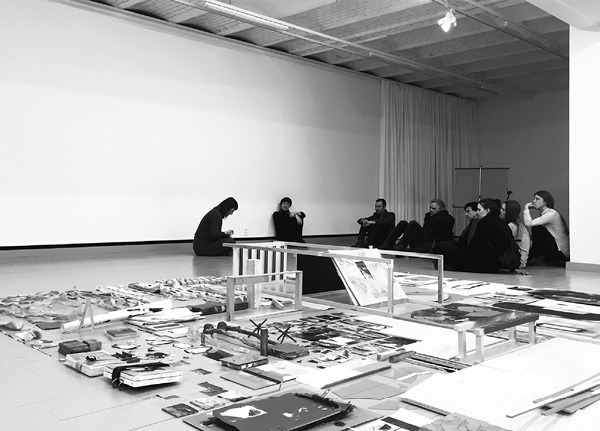
PERFORMANCE MONOLOGUES
first performed on April 1, 2016
Inter Arts Center, Malmö, Sweden
performed thirteen times in 2016
IEKE TRINKS
Rotterdam, Netherlands / Malmö, Sweden
104647160t104647160r104647160i104647160n104647160k104647160s104647160i104647160e104647160k104647160e104647160@104647160g104647160m104647160a104647160i104647160l104647160.104647160c104647160o104647160m
ieketrinks.nl
PERFORMANCE MONOLOGUES
IEKE TRINKS
“Performance Monologues” is an ongoing collection of audio recordings and live recitations. I visit artists and ask them to describe one of their performances from memory while I record them. The recordings help me to recite the monologues from memory before a live audience. This is often done during an art event but also in more intimate situations with one or more listeners. I recite the monologues in the first person since they are initially delivered to me in the first person.
For example, during an opening of an art show I recited a monologue about the performance work “In the Absence of a Body” by the artist duo Díaz-Lewis. I began by saying that I took part in an art show in 2015 hosted by the Chicago Artists Coalition. I said that I had decided to stay in the US, which meant that my personal situation was that of an unlawful presence. I explained that a Cuban has to stay in the US for one year and one day in order to qualify for a residency permit, and that the maximum visa stay a Cuban can get is six months. I talked about my action for the art show that involved building a wall in which I lived for three weeks without making contact with anyone.
In another monologue describing the performance “To Look and Be Looked at” by Anet van de Elzen, I explained that in 2015 I performed in a former prostitute’s room in the red light district of Amsterdam. I described the circumstances of the work—for example, the many prostitutes behind the windows and the large number of tourists that passed by each hour. I sat on a huge pile of potatoes behind a large window facing the street. My action consisted of taking the dirt from the potatoes and rubbing it on my face.
I started the monologues for a couple of reasons. First, I have had experiences of failing to describe my own performances to others in a satisfactory way. Second, I wanted to get to know the performance works of others by hearing about the experience of doing the work. Third, the question of documentation interests me; for the record what is left of a past performance? And fourth, listening to someone describe their actions makes it possible to think of a performance in relation to the artist’s body.